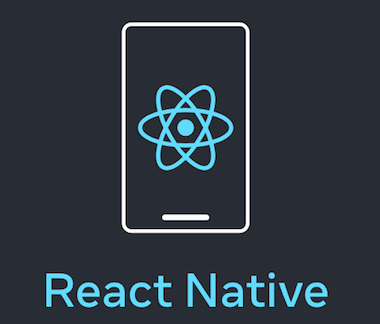One code… two platforms
For several years now, the React Native framework has taken the tech world by storm by offering a way to simultaneously develop mobile applications for iOS and Android.
The React Native framework has been successfully adopted by hundreds of companies worldwide, including Uber, Microsoft, and Facebook, and is used across a range of industries.
The React Native framework has ushered in a new era in cross-platform development by improving the user experience. Building mobile apps can be tricky, but React Native has emerged to provide the most agile tool on the market today. It offers an easier way to build your apps and has many advantages over other app building methods.
The History of the React Native Framework
In 2012, Facebook CEO Mark Zuckerberg publicly stated that using HTML5 for mobile versions of the site was a mistake, after instability and slowness issues emerged in the HTML5-based mobile version of Facebook.
The company then set about finding a suitable alternative to offer a better user experience on mobile platforms.
React Native was first released by Facebook as an open source project in 2015.
Rapid growth for React Native
In just a few years, it has become one of the main solutions used for mobile development.
The main reason for React Native's rapid growth is that it allows you to create an application native without having to learn a new programming language.
All you need is JavaScript and a few native UI elements. No Swift or Kotlin skills are required, making the process much faster and easier.
This makes React Native an ideal solution for projects where time and budget are limited, as it speeds up the entire software development process and allows you to deliver products faster.
Main mobile applications with the React Native Framework
- Coinbase
- Bloomberg
- Uber Eats
- Skype
- Airbnb
- SoundCloud
ReactJS vs. React Native
React (also known as ReactJS) is a JavaScript library used to create the frontend of a website. React is a JavaScript-based application development framework.
React Native is a platform that allows users to develop native and cross-platform mobile applications.
Why choose React Native to develop your mobile application?
1. One code… two platforms
Code reuse is one of the main benefits developers can expect from React Native, as it allows them to develop for both iOS and Android platforms with a single codebase.
2. Performance close to or better than native performance
React Native is known for delivering high performance through the use of modules and native control. React Native is connected to native components for both operating systems and is convenient for generating native API code. React Native applications perform optimally because they use separate threads for native APIs and the user interface.
3. It is free, open-source and supported by a large community.
React Native is a project supported by a large community of developers, and the platform encourages developers to contribute to improving the framework.
The best alternatives to the React Native Framework
- Flutter
- Xamarin
- Ionic
- Cordova
- Unity
In summary
React Native is a viable solution for developing native, cross-platform mobile apps. It has a growing developer community and is the first platform that makes it easy to add native code to an app's codebase.
Although React Native is a promising platform for app development, there are still some drawbacks that make it difficult to completely replace native development. For example, React Native requires an application written in JavaScript as its intermediate codebase, which makes the app vulnerable since JavaScript can be easily exploited via malicious URLs. While security tools have been implemented to address this issue, they are not yet fully effective.
The fact that React Native is cross-platform and easy to use strongly outweighs its drawbacks.
The important thing is to choose the platform that you think will best meet your needs.
Thanks for reading, I hope this article has helped you better understand the React Native Framework and how it can help you develop mobile applications on all platforms.
We offer web development and mobile at the forefront of new technologies, our expert teams in web, mobile and blockchain development constantly stay up to date with trends to offer the best expertise for your future developments, if you would like to find out more from our experts, contact us.
Find out more with our articles on our blog on new technologies
credit photo @unsplash


